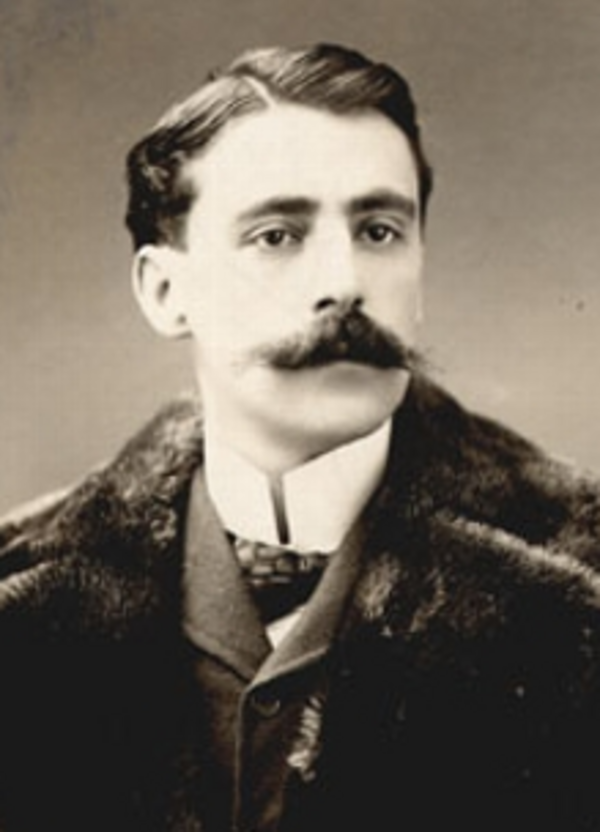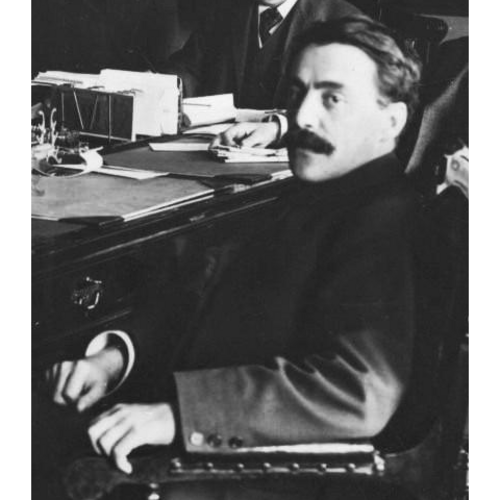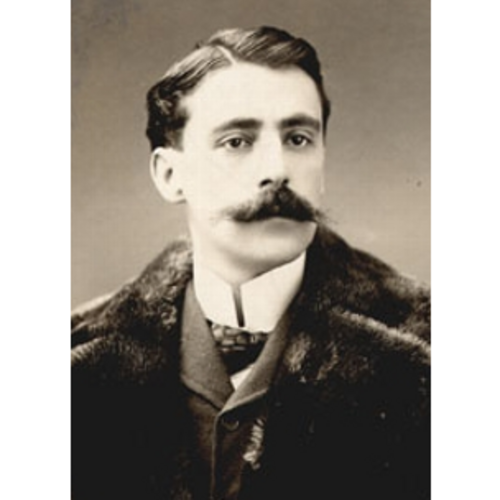
Source: Courtesy of Wikimedia Commons
PRÉVOST, JEAN (baptized François-Jean-Berchmans), lawyer, newspaper editor, and politician; b. 17 Nov. 1870 in Sainte-Scholastique (Mirabel), Que., son of Wilfrid Prévost, a lawyer and future legislative councillor, and Angélique-Reine Marier; m. 19 Nov. 1895 Gabrielle Gagnon in Montreal, and they had two children; d. there 21 July 1915 and was buried 26 July in Saint-Jérôme, Que.
Jean Prévost did his classical studies with the Jesuits at the Collège Sainte-Marie in Montreal, and then studied law at the branch of the Université Laval there, obtaining an llb in 1894. He was called to the Quebec bar in July 1894 and would be made a kc on 30 June 1903. Prévost practised his profession in Saint-Jérôme, first in partnership with his father and later with Camille Lemoyne de Martigny and Charles-Édouard Marchand. From 1901 to 1910 he was in practice with Thibaudeau Rinfret*. He acted as counsel for religious communities and for a number of large commercial and industrial firms.
Prévost had a passion for culture and travelled to Europe several times. He was a tireless reader, devouring works on philosophy, literature, and history. Like a number of his contemporaries among the lower middle class in the region north of Montreal, he prided himself on his writing. In 1902–3 he was the managing editor of L’Avenir du Nord, for which he wrote articles on literature and politics. Some of his pieces dealing with the inevitable question of colonization of unsettled areas were published by Le Devoir. In addition he twice wrote year-end revues, which were performed by amateur actors. Neither his profession nor his literary pastimes, however, were sufficient to fill his life. He craved social action. Above all he was a true political animal.
In the 1900 provincial election, Prévost ran for the Liberals in Terrebonne, which had long been a Conservative bastion, the stronghold of the Massons, Joseph-Adolphe Chapleau*, and, for nearly 20 years, the Nantels. He wrested the seat from Guillaume-Alphonse Nantel* by 20 votes. In 1904 he easily defeated Olivar Asselin*. On 3 July 1905 he became minister of colonization, mines, and fisheries in the cabinet of Lomer Gouin*. Prévost had been in office barely two years when he was accused of corruption by Asselin and his newspaper, Le Nationaliste (Montréal). On 30 Sept. 1907 he submitted his resignation to Gouin in order to sue his detractors. The premier accepted it without regret, apparently happy to be rid of a minister who has been described as a “roisterer” by Robert Rumilly* and who was absent from too many cabinet meetings. Events took a dramatic turn on 24 March 1908, when Prévost embarked on vehement and far-reaching criticism of the government’s colonization policy, creating an embarrassing situation for Gouin and unexpectedly putting his own record in office on trial. The outburst did not prevent him from running again as a Liberal in Terrebonne in June 1908, when he again defeated Nantel.
Prévost’s time with the Liberals was running out, however. The battle he was waging alongside his erstwhile enemies, the Nationalistes (including Henri Bourassa*, Armand La Vergne*, and Asselin), against a bill to establish a Canadian navy and his open opposition to Prime Minister Sir Wilfrid Laurier on this question made his break with the Liberal party complete. Putting politics ahead of family loyalty, his cousin and long-time friend Jules-Édouard Prévost* took a firm stand on the prime minister’s side. The official organ of the Liberals, L’Avenir du Nord, of which Jules-Édouard was the publisher, attacked Prévost relentlessly. But for all its campaigning against him in the 1912 provincial election, the darling of Saint-Jérôme, running as an independent Liberal both in L’Assomption and in Terrebonne, still carried the day against Camille Lemoyne de Martigny, the Conservative candidate in Terrebonne.
Prévost waged his last great battle in the Legislative Assembly against Gouin in 1914 over a bill on the affiliation of the École des Hautes Études Commerciales de Montréal with the Université Laval. At a conference on colonization held in Saint-Jérôme in 1905, he had offered his support as minister (doubtless for political expediency) to Archbishop Paul Bruchési* of Montreal and to the clergy in carrying out their educational work at the elementary level, but he now reverted to the principles of the old Rouges. He called for the creation of a state university, as originally planned, and vigorously denounced the alliance between the government and the archdiocese of Montreal.
His vehemence probably concealed a profound disenchantment with political life. His career had come to a dead end. The Liberals were managing very well without him, he was not attracted to the Conservative party, which certainly had no place for him, and the Nationalistes, his occasional allies of the last few years, were still a politically marginal group. He remained at his post a little longer, until he fell victim to cancer at age 44. His funeral in Saint-Jérôme on 26 July 1915 was attended by a large crowd.
Although he may have been more talented than his old adversary Nantel, Jean Prévost did not leave as much of a mark at either the regional or the provincial level. Unlucky, unable to put his many abilities and all his energy at the service of good causes at the right time, Prévost, who had been a cabinet minister at 34, does not seem to have fulfilled all the hopes placed in him by his contemporaries.
ANQ-M, CE1-173, 19 nov. 1895; CE6-22, 18 nov. 1870. L’Avenir du Nord (Saint-Jerôme, Qué.), 23 juill. 1915. Le Devoir, 22 juill. 1915. É.-J.[-A.] Auclair, Saint-Jérôme de Terrebonne (Saint-Jérôme, 1934), 353–54. Joseph Levitt, Henri Bourassa and the golden calf; the social program of the nationalists of Quebec (1900–1914) (Ottawa, 1969). Qué., Assemblée Législative, Débats, 1901–15. RPQ. Rumilly, Hist. de la prov. de Québec, vols.11–19. Mason Wade, Les Canadiens français, de 1760 à nos jours, Adrien Venne et Francis Dufau-Labeyrie, trad. (2v., Ottawa, 1963), 2.
Cite This Article
Serge Laurin, “PRÉVOST, JEAN (baptized François-Jean-Berchmans),” in Dictionary of Canadian Biography, vol. 14, University of Toronto/Université Laval, 2003–, accessed December 30, 2025, https://www.biographi.ca/en/bio/prevost_jean_14E.html.
The citation above shows the format for footnotes and endnotes according to the Chicago manual of style (16th edition). Information to be used in other citation formats:
| Permalink: | https://www.biographi.ca/en/bio/prevost_jean_14E.html |
| Author of Article: | Serge Laurin |
| Title of Article: | PRÉVOST, JEAN (baptized François-Jean-Berchmans) |
| Publication Name: | Dictionary of Canadian Biography, vol. 14 |
| Publisher: | University of Toronto/Université Laval |
| Year of publication: | 1998 |
| Year of revision: | 1998 |
| Access Date: | December 30, 2025 |





